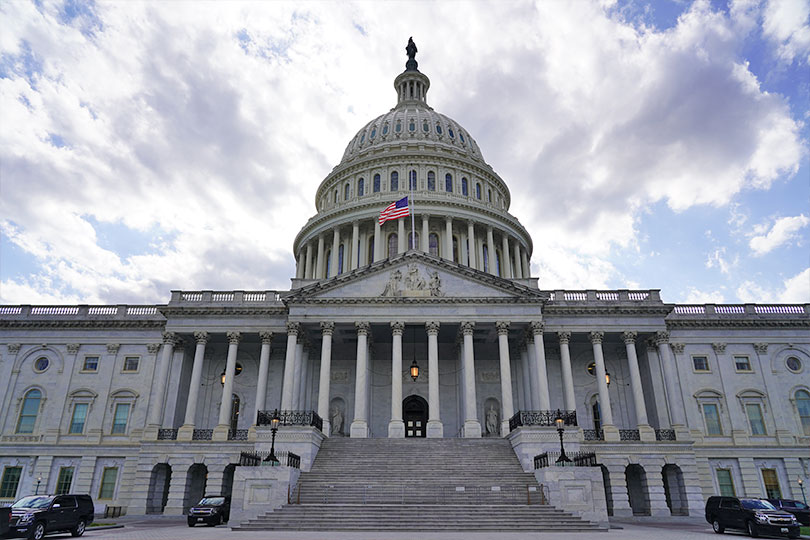By Jessica Domel
Multimedia Reporter
The record-breaking 43-day government shutdown is now over.
On Wednesday evening, the U.S. House of Representatives voted 222 to 209 on a measure to fund the government through Jan. 30, provide full fiscal year funding for the U.S. Department of Agriculture (USDA) and Food and Drug Administration and extend the 2018 Farm Bill by another year.
“Texas Farm Bureau (TFB) welcomes the U.S. House of Representatives’ action to fund the government,” TFB President Russell Boening said. “With the legislation now headed to the president’s desk, it’s time for the federal government to get back to work. Texas farmers and ranchers never have the luxury of shutting down, and neither should the federal government.”
Many farm bill programs were extended through HR 1, the One Big Beautiful Bill Act (OBBBA), that was signed by President Trump July 4. This bill provides a single-year extension for the farm bill programs not extended by OBBBA like the Conservation Reserve Program.
“Ending the government shutdown ensures critical USDA services resume so vulnerable families no longer experience disruptions to nutrition benefits, farmers can access the programs and personnel they rely on to keep their operations running efficiently and disaster assistance is delivered,” U.S. Sen. John Boozman, chair of the Senate Agriculture Committee, said.
The continuing resolution also extends the U.S. Grain Standards Act, which provides procedures for grain inspections and weighing.
“We advanced long-overdue farm bill policy improvements in the One Big Beautiful Bill, including enhanced risk management tools farmers have been calling for, and we’re continuing work to reauthorize other key initiatives,” Boozman said. “Extending the farm bill and the U.S. Grain Standards Act gives us more time to finalize these programs essential to farmers, ranchers and rural America.”
The U.S. Grain Standards Act allows the U.S. Secretary of Agriculture to establish official marketing or quality standards for barley, canola, corn, flaxseed, mixed grain, oats, rye, sorghum, soybeans, sunflower seed, wheat and triticale.
While much of the act is permanently authorized, such as the mandatory inspection and weighing of exported grain, other key provisions required action by Congress.
The expiring provisions authorize annual appropriations for standard development and maintenance, provide USDA with authority to charge fees for the supervision of inspections and weighing, apply an administrative/supervisory cost cap and authorize an advisory committee.
A provision in the CR prevents the unregulated sale of hemp-based and hemp-derived products.
According to Reuters, the continuing resolution prohibits federal agencies from firing employees until Jan. 30. It also ensures backpay for all federal employees impacted by the government shutdown.
The deal to reopen the government was reached after Senate leadership agreed to discuss Affordable Care Act subsidy extensions in December.
The CR cleared the Senate in a 60 to 40 vote Monday with nearly all Republicans and eight Democrats voting in favor of the legislation.
In the House, all but two Republicans voted in favor of the CR. Six democrats supported the legislation.
The president signed the CR Wednesday evening.
Now that the government has reopened, Boening urges Congress to take action to help Texas farmers and ranchers.
“Congress must act now to deliver short-term relief and also commit to long-term solutions for a struggling farm economy. This means delivering immediate bridge assistance to struggling producers to make it into 2026, completing the farm bill without delay, and advancing pro-agricultural trade policies,” Boening said. “These actions are critical to stabilize operations today and strengthen commodity markets for the future.”


Leave A Comment